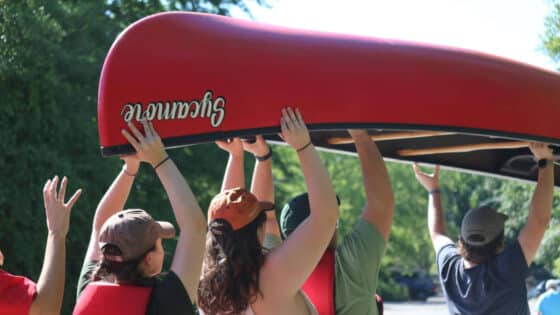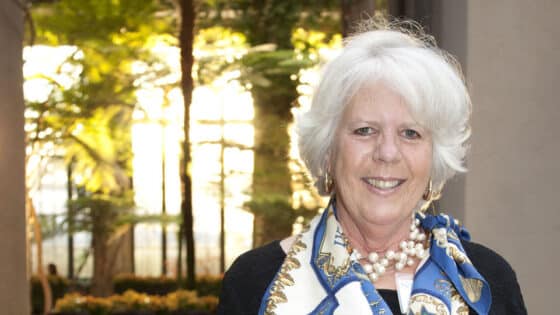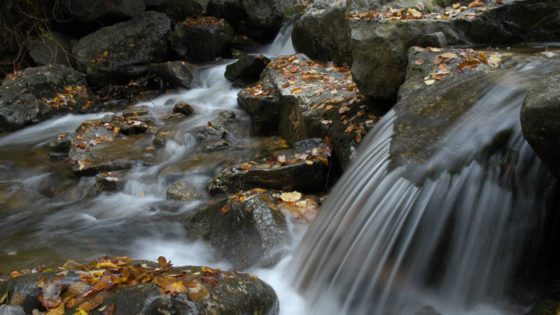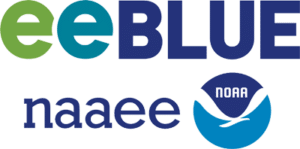
The North American Association for Environmental Education (NAAEE), in partnership with the National Oceanic and Atmospheric Administration (NOAA) and supported by the U.S. Department of Education, is excited to award $2.35 million to 29 environmental education organizations that will partner with NOAA to provide enriching after school watershed-related STEM (science, technology, engineering, and mathematics) projects. These grants will support programming for a total of 91 local 21st Century Community Learning Centers (21st CCLC) sites and their students, many of whom live in high-poverty and underserved areas.
The 29 selected projects are serving 17 states, ranging from Alaska to Florida. These Watershed STEM Education Partnership Grants allow environmental education organizations like Stroud Water Research Center to collaborate directly with local 21st CCLC sites on the design and implementation of locally relevant, out-of-school-time programs that develop students’ environmental literacy and leadership skills as they improve their communities. The funding is provided by the U.S. Department of Education and administered by NAAEE.
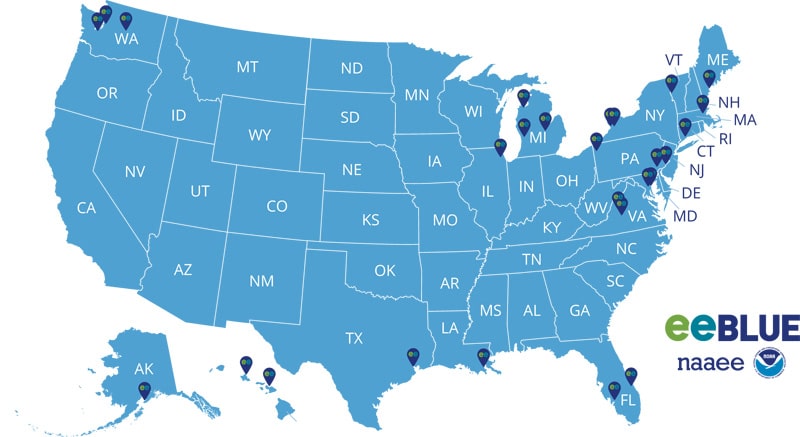
Beginning in fall 2020 at the Stroud Center’s local 21st CCLC sites, students will learn about STEM while also building leadership and advocacy skills by participating in exciting hands-on learning activities and connecting to nature. Due to current public health guidelines, implementation at some sites may not be immediately possible. In the meantime, Watershed STEM grantees are offering virtual professional development opportunities and planning with partners to ensure that their projects are tailored to evolving partner and community needs.
“We are so excited and thankful for the opportunity to provide meaningful Watershed STEM education programs to the 21st CCLC students and staff in our area,” says David Kline, lead program coordinator for the Stroud Center’s 21st CCLC Watershed STEM Grant to support elementary through high school students in Pennsylvania.
“We are looking forward to collaborating with our site partners to develop and implement exceptional programing that will build skills and understandings of our relationship with our watersheds, and also inspire participants to be active watershed stewards.”
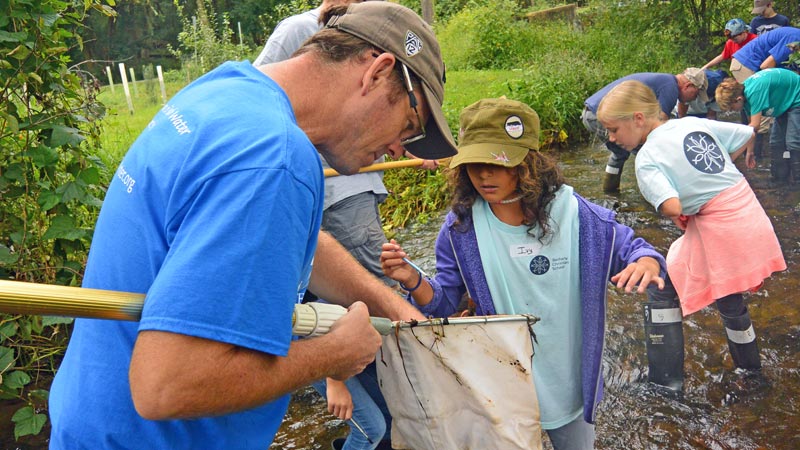
As some school districts consider reopening, Watershed STEM grantees and partners are working with their communities to determine whether moving classrooms outdoors may present opportunities for safer educational experiences in the future. Staff will also gain from the partnership, strengthening both environmental literacy and teaching skills. NOAA and 21st CCLC partners will deliver authentic STEM experiences that use components of the NOAA Bay Watershed Education and Training (B-WET) Meaningful Watershed Educational Experience (MWEE) model along with other NOAA assets and expertise.
“Watershed STEM programming will be a new engaging experience for our students and staff,” says Michelle Reed, Michelle Reed, Chester County Program Coordinator for Pennsylvania’s Migrant Education Program and Nita M. Lowey 21st CCLC Program Coordinator for Oxford and Avon Grove School Districts. Reed is working closely with Stroud Center educators on Watershed STEM programs tailored to her sites’ unique learning needs. “We are eager to work together to cultivate expanded learning opportunities for students in our programs.”
These grants are part of eeBLUE, NAAEE’s effort to build collaborative partnerships that support the mutual STEM education goals of NOAA and the U.S. Department of Education. “We greatly appreciate the hard work of NAAEE and all the grantees to create these amazing STEM opportunities for students across the country,” said Louisa Koch, Director of Education at NOAA.
“It is so exciting to launch this unique opportunity and work together with NOAA and the Department of Education to support educators and 21st CCLC sites. Combining our strengths is a force multiplier in both creating equitable STEM opportunities for students across the country, and strengthening EE programs. Together, we can help build a more equitable and sustainable future,” says T’Noya Thompson, Environmental Education Specialist at NAAEE and Program Manager for the grant.
“These programs will enrich communities around the country, and ultimately cultivate a sense of stewardship within everyone involved.”
About Stroud Water Research Center
Stroud Water Research Center advances knowledge and stewardship of freshwater systems through global research, education, and watershed restoration and to help businesses, landowners, policymakers, and individuals make informed decisions that affect water quality and availability around the world. Stroud Water Research Center is an independent, 501(c)(3) not-for-profit organization.
About NAAEE
For almost five decades, the North American Association for Environmental Education (NAAEE) has served as the professional association, champion, and backbone organization for the field of environmental education (EE), working with EE professionals across United States, Canada, and Mexico, as well as globally, to advance environmental literacy and civic engagement. NAAEE is the only national membership organization dedicated to strengthening EE and increasing the visibility and effectiveness of the field. With more than 20,000 members and supporters, including affiliations with 56 state and provincial EE organizations and members in more than 30 countries, NAAEE’s work aims to provide the field with professional development, access to learning networks and collaborative partnerships, tools and resources to promote effective practice, and leadership and capacity building. NAAEE is also involved in a number of field-building activities and signature programs, including the Natural Start Alliance to advance environmental education in early childhood and the Global Environmental Education Partnership—a global network dedicated to building capacity at the country level (see thegeep.org). For more information on NAAEE, visit https://naaee.org.
About NOAA
The National Oceanic and Atmospheric Administration (NOAA) is an agency that enriches life through science. From daily weather forecasts, severe storm warnings, and climate monitoring to fisheries management, coastal restoration and supporting marine commerce, NOAA’s products and services support economic vitality and affect more than one-third of America’s gross domestic product. NOAA’s dedicated scientists use cutting-edge research and high-tech instrumentation to provide citizens, planners, emergency managers, and other decision-makers with reliable information they need when they need it.
About eeBLUE
NAAEE is building partnerships that support the mutual Science Technology Engineering Math (STEM) education goals of the National Oceanic and Atmospheric Administration (NOAA) and the U.S. Department of Education through an exciting collaboration called eeBLUE. eeBLUE is a $5 million, five-year partnership agreement between NOAA and NAAEE to help create a more environmentally literate society that has the knowledge, skills, and motivation to conserve our natural resources and build more resilient communities across the country. It will also strengthen professional networks, support high-quality STEM education, and provide education and outreach for educators and other audiences.
To learn more and follow our partners’ eeBLUE journey, please visit our Watershed STEM Education Grants webpage and follow NAAEE on Facebook and Twitter @TheNAAEE.
About the U.S. Department of Education’s 21st Century Community Learning Centers (21st CCLC) Program
This program supports the creation of community learning centers that provide academic enrichment opportunities during non-school hours for children, particularly students who attend high-poverty and low-performing schools. The program helps students meet state and local student standards in core academic subjects, such as reading and math; offers students a broad array of enrichment activities that can complement their regular academic programs; and offers literacy and other educational services to the families of participating children.
The 21st CCLC program is the largest out-of-school program in the nation, serving over 1.5 million students in all 50 states. The 21st CCLC sites provide academic enrichment opportunities during out-of-school time for children, particularly students who attend high-poverty and low-performing schools.

